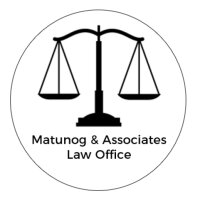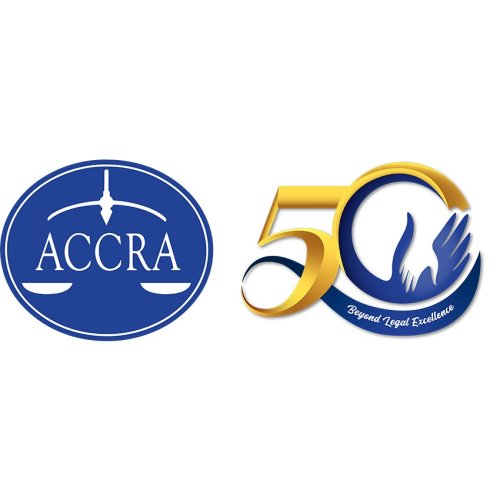Best Restructuring & Insolvency Lawyers in Davao City
Share your needs with us, get contacted by law firms.
Free. Takes 2 min.
List of the best lawyers in Davao City, Philippines
About Restructuring & Insolvency Law in Davao City, Philippines
Restructuring and insolvency law in Davao City, as in the rest of the Philippines, offers companies and individuals facing financial difficulties a legal framework to manage debts, protect assets, and potentially return to financial health. These laws are designed to balance the interests of creditors, debtors, employees, and other stakeholders. Davao City, being a major commercial hub in Mindanao, has a variety of enterprises that may encounter financial stress, making these legal provisions highly relevant. The law provides for both court-supervised and out-of-court remedies that allow businesses to reorganize or, if necessary, to liquidate assets in an orderly manner.
Why You May Need a Lawyer
Legal assistance is crucial in restructuring and insolvency situations. Here are some common scenarios where a lawyer’s help becomes essential:
- Business Restructuring: Companies struggling with debt but seeking to continue operations may need legal advice to restructure their obligations within the bounds of the law.
- Insolvency Proceedings: When a business or individual can no longer meet their financial obligations, a lawyer can help file for insolvency or bankruptcy protection.
- Creditor Claims: Creditors seeking to recover debts from insolvent entities may require legal support to file claims appropriately.
- Asset Protection: Legal expertise can help ensure that the rights of all parties, including employees and secured creditors, are protected throughout the process.
- Negotiation & Mediation: A lawyer can assist in negotiating settlements, payment plans, or out-of-court rehabilitation agreements.
- Compliance and Documentation: Ensuring all resolutions, filings, and notifications comply with legal requirements is critical to avoid future disputes.
Local Laws Overview
Restructuring and insolvency in Davao City are primarily governed by national laws rather than local ordinances. Key statutes include:
- Financial Rehabilitation and Insolvency Act of 2010 (FRIA, Republic Act No. 10142): This law sets forth the procedures for both rehabilitation and liquidation of financially distressed companies and individuals.
- The Rules of Procedure on Corporate Rehabilitation: These Supreme Court-promulgated rules provide the process for rehabilitation petitions filed in Regional Trial Courts, including those in Davao City.
- Bounce Back Loans and Small Business Rehabilitation: As the business environment evolves, specific government programs and policies may supplement existing laws, especially in response to economic crises.
In Davao City, insolvency and restructuring cases are typically filed with the Regional Trial Courts, which have jurisdiction over such matters. The presence of specialized commercial courts in the city enhances access to these legal remedies.
Frequently Asked Questions
What is the difference between restructuring and insolvency?
Restructuring allows a financially troubled company or individual to reorganize debt obligations and operations to avoid insolvency. Insolvency is a legal state where one cannot pay debts as they come due, often resulting in liquidation or court-supervised debt rehabilitation.
Can individuals file for insolvency in Davao City?
Yes, individuals who are unable to pay their debts may file for personal insolvency under the FRIA. The process can include suspension of payments, voluntary liquidation, or involuntary liquidation initiated by creditors.
What are the main types of court proceedings available for distressed businesses?
The main types include court-supervised rehabilitation, pre-negotiated rehabilitation, and liquidation. Each process aims to balance the interest of debtors and creditors under different circumstances.
Do I have to go to court to seek rehabilitation?
Not always. Philippine law recognizes out-of-court or informal restructuring agreements between debtors and creditors, provided they meet specific requirements, such as consent from a majority of creditors.
What happens to employees during restructuring or insolvency?
Employees are usually classified as preferred creditors for unpaid wages and benefits. Their claims are given priority during the distribution of assets in liquidation or court-supervised rehabilitation.
How long does a rehabilitation or insolvency process take?
The duration varies depending on the complexity and scale of the case. Court-supervised rehabilitation typically spans several months to a few years, while out-of-court agreements may be resolved more quickly.
What documents are needed to file for restructuring or insolvency?
Common requirements include audited financial statements, list of assets and liabilities, schedule of creditors, business plans or rehabilitation proposals, and supporting contracts or agreements.
Can creditors force a company into insolvency in Davao City?
Yes, creditors can file a petition for involuntary liquidation against a debtor who defaults on payments, provided legal thresholds are met as specified under the FRIA.
What are the risks of not seeking legal advice in restructuring or insolvency situations?
Without legal guidance, parties risk making procedural mistakes, losing assets, facing delayed resolutions, or incurring liabilities due to noncompliance with statutory requirements.
Are there special considerations for small businesses in Davao City?
Small and micro-businesses have certain exemptions and may be eligible for streamlined procedures or government assistance programs. Consulting a local lawyer helps in exploring suitable options for these businesses.
Additional Resources
If you are dealing with restructuring or insolvency concerns in Davao City, the following resources can provide guidance and support:
- Philippine Securities and Exchange Commission (SEC): Handles corporate rehabilitation-related filings and provides guidance on compliance requirements.
- Regional Trial Courts (Commercial Division), Davao City: Jurisdiction over insolvency and corporate restructuring cases.
- Department of Trade and Industry (DTI) Davao Region: Offers support for distressed micro, small, and medium enterprises.
- Integrated Bar of the Philippines (IBP), Davao City Chapter: A professional organization that can assist in finding qualified lawyers specialized in restructuring and insolvency.
- Department of Labor and Employment (DOLE) Davao: For labor-related questions during insolvency or restructuring proceedings.
Next Steps
If you or your company is experiencing financial stress and may need restructuring or insolvency assistance in Davao City, consider the following steps:
- Assess Your Situation: Take stock of your financial obligations and identify areas of concern.
- Consult a Lawyer: Seek legal advice from a practitioner with experience in restructuring and insolvency to understand your options and obligations.
- Prepare Relevant Documents: Gather financial records, contracts, and other pertinent information for your initial consultation.
- Explore Possible Remedies: Discuss all possible solutions, such as out-of-court settlements, restructuring, or formal court proceedings.
- Take Immediate Action: Quick and decisive steps, with professional guidance, can help mitigate losses and protect your interests.
Entering restructuring or insolvency proceedings can be complex and emotionally challenging, but with the right information and legal support, you can navigate the process more effectively and find a path toward resolution or recovery.
Lawzana helps you find the best lawyers and law firms in Davao City through a curated and pre-screened list of qualified legal professionals. Our platform offers rankings and detailed profiles of attorneys and law firms, allowing you to compare based on practice areas, including Restructuring & Insolvency, experience, and client feedback.
Each profile includes a description of the firm's areas of practice, client reviews, team members and partners, year of establishment, spoken languages, office locations, contact information, social media presence, and any published articles or resources. Most firms on our platform speak English and are experienced in both local and international legal matters.
Get a quote from top-rated law firms in Davao City, Philippines — quickly, securely, and without unnecessary hassle.
Disclaimer:
The information provided on this page is for general informational purposes only and does not constitute legal advice. While we strive to ensure the accuracy and relevance of the content, legal information may change over time, and interpretations of the law can vary. You should always consult with a qualified legal professional for advice specific to your situation.
We disclaim all liability for actions taken or not taken based on the content of this page. If you believe any information is incorrect or outdated, please contact us, and we will review and update it where appropriate.












